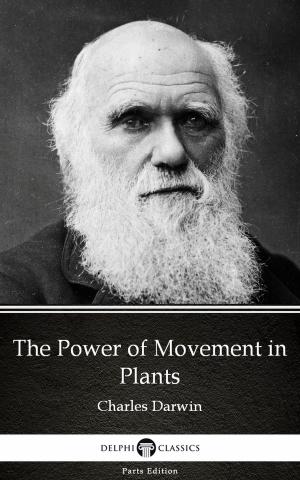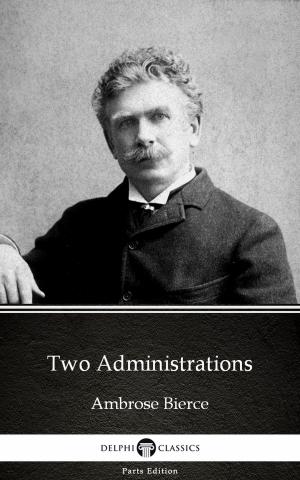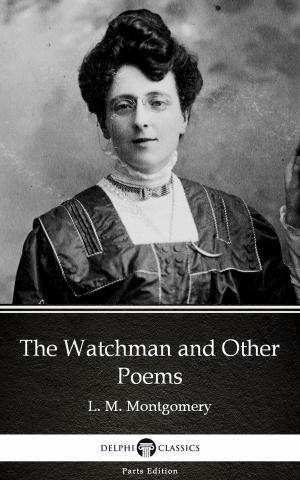| Author: | Jeanie Lang | ISBN: | 6610000020812 |
| Publisher: | PublishDrive | Publication: | July 16, 2017 |
| Imprint: | Merkaba Press | Language: | English |
| Author: | Jeanie Lang |
| ISBN: | 6610000020812 |
| Publisher: | PublishDrive |
| Publication: | July 16, 2017 |
| Imprint: | Merkaba Press |
| Language: | English |
In the deep forest that clothes Mount Ida, not far from the strong city of Troy, Paris, son of King Priam, watched his father's flocks by night.
Suddenly through the dim woods he saw a light, as if the golden sun and silver moon shone both together.
And, lo! in the radiance of this light there stood before him the three fairest of the goddesses—queenly Hera, wise Athene, and lovely Aphrodite.
Like music stealing through the trees came the soft voice of Hera:
"Of all mortal men art thou the most beautiful, Paris, and to thee do we come for judgment. Tell us which of us is the fairest of all, and to that one whom thou so deemest, give this golden apple."
So spake Hera, and placed in the hand of Paris an apple of purest gold.
Again she spake: "If to me, Hera, queen of goddesses, and wife of mighty Zeus, king of all the gods, thou dost grant the prize of loveliness, Power immeasurable shall be thine. King shalt thou be of the lands where the grey dawn rises, and king even to where the red sun goes down. A hundred peoples shall call thee lord."
She was silent, and the voice of Athene, fair and pure as a silver moonbeam, broke the stillness of the starless night.
"To me award the prize," she said, "and wise as the gods shalt thou be. With me as thy friend and guide, all things will be possible to thee."
Last of all, standing in a rosy light, as of the dawning sunlight in the spring, spoke Aphrodite.
"What are Power and Wisdom, fair Paris?" she pled. "Wisdom and Power bring no joy at last. I will give thee Love, and for thy wife thou shalt have the fairest woman in all the world."
And Paris, the melody of her voice still in his ears, as he gazed spellbound on her face of wondrous beauty, handed to Aphrodite the golden prize.
So was it that the wrath of the gods came upon Paris, son of Priam. For Hera and Athene, filled with rage, vowed to be revenged upon Paris and all his race, and made all the gods pledge themselves to aid them in their vengeance.
Across far seas sailed Paris, with Aphrodite as his guide, to Sparta, where Menelaus was king.
A brave king was Menelaus, and happily he lived in his kingdom with Helen, his queen, fairest of all women. One child they had, a little maid, Hermione.
When to Sparta there came Paris, with eyes blue as the sea and hair that gleamed like gold on his purple robe, gallant and brave, and more beautiful than any mortal man, glad was the welcome that he had from Menelaus.
And when Paris gazed on Helen's face, he knew that in all the world there was no woman half so fair as the wife of Menelaus.
Then did Aphrodite cast her magic upon Helen.
No longer did she love her husband, nor did she remember little Hermione, her own dear child.
When Paris spoke to her words of love, and begged her to flee with him, and to be his wife, she knew only that she loved Paris more than all else. Gladly she went with him, and in his red-prowed ship together they sailed across the green waves to Troyland, where Mount Ida showed her snowy crown high above the forests.
An angry man was Menelaus when he found that Paris had stolen from him the fair wife who was to him as his own heart.
To his elder brother Agamemnon, overlord of all the Greeks, he went and told his grievous tale.
And from far and wide did the Greek hosts gather, until a hundred thousand men and eleven hundred fourscore and six ships were ready to cross the seas to Troyland.
Many were the heroes who sailed away from Greece to punish Paris and his kin, and to bring back fair Helen to her own land.
Few there were who came home, for ten long years of woe and of spilling of blood came to the men of Greece and of Troy from the fatal beauty of Helen the queen...
In the deep forest that clothes Mount Ida, not far from the strong city of Troy, Paris, son of King Priam, watched his father's flocks by night.
Suddenly through the dim woods he saw a light, as if the golden sun and silver moon shone both together.
And, lo! in the radiance of this light there stood before him the three fairest of the goddesses—queenly Hera, wise Athene, and lovely Aphrodite.
Like music stealing through the trees came the soft voice of Hera:
"Of all mortal men art thou the most beautiful, Paris, and to thee do we come for judgment. Tell us which of us is the fairest of all, and to that one whom thou so deemest, give this golden apple."
So spake Hera, and placed in the hand of Paris an apple of purest gold.
Again she spake: "If to me, Hera, queen of goddesses, and wife of mighty Zeus, king of all the gods, thou dost grant the prize of loveliness, Power immeasurable shall be thine. King shalt thou be of the lands where the grey dawn rises, and king even to where the red sun goes down. A hundred peoples shall call thee lord."
She was silent, and the voice of Athene, fair and pure as a silver moonbeam, broke the stillness of the starless night.
"To me award the prize," she said, "and wise as the gods shalt thou be. With me as thy friend and guide, all things will be possible to thee."
Last of all, standing in a rosy light, as of the dawning sunlight in the spring, spoke Aphrodite.
"What are Power and Wisdom, fair Paris?" she pled. "Wisdom and Power bring no joy at last. I will give thee Love, and for thy wife thou shalt have the fairest woman in all the world."
And Paris, the melody of her voice still in his ears, as he gazed spellbound on her face of wondrous beauty, handed to Aphrodite the golden prize.
So was it that the wrath of the gods came upon Paris, son of Priam. For Hera and Athene, filled with rage, vowed to be revenged upon Paris and all his race, and made all the gods pledge themselves to aid them in their vengeance.
Across far seas sailed Paris, with Aphrodite as his guide, to Sparta, where Menelaus was king.
A brave king was Menelaus, and happily he lived in his kingdom with Helen, his queen, fairest of all women. One child they had, a little maid, Hermione.
When to Sparta there came Paris, with eyes blue as the sea and hair that gleamed like gold on his purple robe, gallant and brave, and more beautiful than any mortal man, glad was the welcome that he had from Menelaus.
And when Paris gazed on Helen's face, he knew that in all the world there was no woman half so fair as the wife of Menelaus.
Then did Aphrodite cast her magic upon Helen.
No longer did she love her husband, nor did she remember little Hermione, her own dear child.
When Paris spoke to her words of love, and begged her to flee with him, and to be his wife, she knew only that she loved Paris more than all else. Gladly she went with him, and in his red-prowed ship together they sailed across the green waves to Troyland, where Mount Ida showed her snowy crown high above the forests.
An angry man was Menelaus when he found that Paris had stolen from him the fair wife who was to him as his own heart.
To his elder brother Agamemnon, overlord of all the Greeks, he went and told his grievous tale.
And from far and wide did the Greek hosts gather, until a hundred thousand men and eleven hundred fourscore and six ships were ready to cross the seas to Troyland.
Many were the heroes who sailed away from Greece to punish Paris and his kin, and to bring back fair Helen to her own land.
Few there were who came home, for ten long years of woe and of spilling of blood came to the men of Greece and of Troy from the fatal beauty of Helen the queen...















